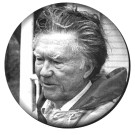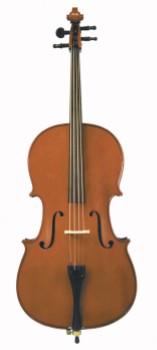Life at the Lake
a diary of living at a small lowland lakeWHAT IT'S LIKE

Early moonrise over Lake Ketchum
|
Archive Search |
| Links |
|
and s-integrator |
WORLD'S RICHEST MAN

If you don't know who he is, read no further
257
The following is an exercise in MS Word 2003's Speech Recognition Dictation application. The poem is Robert Frost's "Stopping By The Woods On a Snowy Evening"—in case you don't immediately recognize it, and I promise you you won't:
"And stopping by the wayside is selling even 'once these are the things I'm no is houses in the village so he will not see the stopping here to watch his was the law was still little horse was thinking clear to stop without a farmhouse near between the woods and frozen lake and RTC evening of the year he gives his hardest bills issued to ask if there is some mistake the only other sound asleep of EC winded down the flight the woods are lovely dark and deep that I have promises to keep and miles to go before I sleep and miles to go before I sleep"
And for those who might fault me, rather than MS, I point out that, yes, I did train Windows Speech Recognition to my ordinary but peculiar voice.
Repeatedly and carefully.
Shame on you, Bill Gates. I know you and your staff have been working on this for years. But to market it in such . . . shape. . . is near-criminal.
Criminal? Yes, because money is involved. And deception.
- - Comments ()
...

Poet William Stafford of Oregon
256
We have quoted him before, and he remains one of our Pacific Northwest favorite poets, though a decade dead.
In his son's fine biography, Early Morning, Kim refers to him lovingly as "a kind of porcupine turned inside out: outwardly personable, congenial, hospitable, a good and easy friend, but inwardly bristling with pointed questions." [page 245] He continues by saying that, in the words of Sir Philip Sydney, a poet should think like a philosopher "but speak in the common idiom."
Kim quotes briefly from his father's poem, "Faux Pas":
In the jungle where you live wild animals will snarl at night,/and you will love the sound, its definite "Here I am."
Nice, whot?
- - Comments ()
...
THE TRUTH? HARDLY!

Who will believe a proven liar? (WMD.) I wouldn't.
255
I could not watch President Bush's State of the Union Address last night, for fear that it would further diminish my lingering love of country.
Okay, okay. I admit to watching news summaries of it later on TV. Much had already been strategically leaked days before, so there were few surprises.
And what benefits did I get from the summaries? Not many, but they did break me of the laxative habit. (At least temporarily.)
- - Comments ()
...
LOVE THAT CELLO SOUND!

254
One New Year's Eve about ten years ago my wife and I went to Maggie Leahy's annual party. We greeted our hostess, then split up. I drank quietly by myself for a few minutes and then noticed an attractive woman sitting nearby, whom I recognized as the wife of the recently deceased conductor of the Seattle symphony, Rainier Meidel. Her name was Cornelia.
We began chatting and I told her about the important role music played in my life. She nodded, happily responsive. She smiled and I assumed she was pleased to be recognized and identified. I decided to press on.
"In fact, I have music playing most of the time while I work," I added toadishly.
Her face hardened immediately and I knew I had said the wrong thing. She had one of those plastic faces that quickly expresses one's beliefs beyond any doubt.
"When you listen to music," she said, "you must always pay close attention. Do not do something else. Listening to the music is what is important. Only the music."
I knew that she was right, in her own way, and that I was wrong. But she was a professional musician and played the cello in her husband's orchestra, the finest one around for hundreds of miles, and I was just a listener who was seeking to entertain himself.
She had a strong German accent and a personality to go with it. I could imagine how she was as an instructor. You would learn to play, and play well, or else. The "or else" meant she would no longer bother trying to teach you. You would be dismissed.
So for a moment, a brief one, I tried to imagine my life without music as an accompaniment to my work and play. I could not.
Sorry, Cornelia, but I must continue in my blithe, errant manner. Music as background and, sometimes, as with the Shostakovich, it will arrest me and turn me in an important new direction. But not usually, not often.
Yet I still think it must be neat to be able to play the cello and I may someday consult The Yellow Pages for someone in this distant neighborhood who could teach me how at a price that is not exorbitant.
At the same time, while I am listen to my beloved Dimitri and one of his cello concerti, I am pretty sure that I will never get around to doing it.
That is the nature of dreams.
- - Comments ()
...